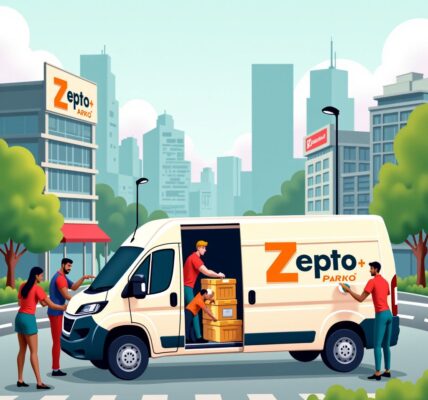As the festive season approaches, quick commerce platforms are experiencing a significant upswing in gift orders, particularly during Diwali. Major players such as Blinkit, Swiggy Instamart, and Zepto are leaving no stones unturned by enhancing their offerings and inventory to cater to this increase in demand. By introducing features like Equated Monthly Installments (EMI), postpaid payment options, and exceptionally quick returns, these platforms are redefining shopping behaviors during one of the most celebrated festivals in India.
The concept of quick commerce, defined as hyper-local delivery services that promise extremely fast turnaround times, has gained traction particularly in the days leading up to Diwali. According to Datum Intelligence, the seismic shift toward quick commerce has been largely driven by what consumers are experiencing—a last-minute rush to secure gifts, decor, and essentials just before the festivities commence.
Festive Offerings Tailored for Diwali
To fully capitalize on the potential increase in orders, quick commerce platforms are curating special sections dedicated to Diwali within their apps. These sections feature a variety of product categories, including puja essentials, home decor, gifting options, and party supplies. By creating these dedicated areas, platforms are making it easier for shoppers to locate what they need quickly.
Satish Meena, an advisor at Datum Intelligence, highlighted that the first few days of the festive period are crucial for ecommerce platforms, as consumers focus on larger purchases such as electronics and home appliances. He pointed out that during this time, 60-70% of planned purchases occur, making it an ideal time for quick commerce services to capitalize on spontaneous purchases.
Rapid Growth in Quick Commerce
Recent indications suggest that quick commerce could potentially account for $1 billion of the overall ecommerce sales in terms of gross merchandise value (GMV) during this festive season. The GMV reflects the total sales value of goods sold through ecommerce channels, providing insight into the expected financial performance of these platforms.
One of the key aspects contributing to this rapid growth is the convenience promised by these platforms. They enable shoppers to complete purchases almost instantaneously—ideal for last-minute gift shopping. Swiggy, for example, noted an uptick in demand for cleaning supplies, home decor, and serveware as households undertake their annual “Diwali ki safai,” or Diwali clean-up. Such insights underline how quick commerce does more than just facilitate gifting; it also enhances the overall festive experience.
Zepto has also announced that it is prepared with a wide range of festive essentials, including traditional decor items and sweets, aimed at catering to the evolving needs of consumers during this period. As consumer behavior shifts towards a desire for convenience, such offerings gain relevance, particularly when aiming for urgent last-minute purchases.
D2C Brands Harnessing Quick Commerce
Direct-to-consumer (D2C) brands are closely monitoring the burgeoning market for quick commerce. Many sellers are likely to experience a notable increase in sales, especially as the festival approaches. This trend isn’t just limited to large ecommerce firms; smaller brands are also adapting quickly.
Pradeep Krishnakumar, cofounder of the fashion and lifestyle brand Zouk, pointed out that quick commerce had a significant impact during prior gifting days, such as Karwa Chauth, where they saw a remarkable 5-10x increase in daily sales on these platforms. This trend is expected to continue as Diwali approaches, emphasizing the importance of time-sensitive offers and products.
Another notable brand, The Baker’s Dozen, showcased how its quick commerce capabilities allow it to respond rapidly to fluctuating demands for perishable goods. They are experiencing an observable 20% growth day-over-day during this peak gifting period compared to standard business days.
Managing Expectations
While the surge in quick commerce can yield significant gains, it is essential to understand that this growth is temporary and may not translate into long-term market share improvements. As Aditi Agrawal, cofounder of Nestasia, highlighted, traditional marketplaces tend to see peak sales leading up to the day of an event, while quick commerce often manifests its highest demand just days ahead of major celebrations.
This insightful analysis assists brands in preparing adequately for upcoming high-demand periods, leading to better strategies and planning.
Conclusion
The surge in quick commerce platforms during the Diwali season illustrates not only the rapidly shifting consumer preferences toward immediacy but also the significant role these platforms play in enhancing the festive shopping experience. With dedicated sections for Diwali items, faster delivery options, and a range of popular festival-related products, companies are well-positioned to reap the rewards that this festive season presents.
Quick commerce is not merely a trend but a service model that is becoming integral to how consumers shop, especially during busy periods like Diwali. As brands strive to cater to the immediate needs of their customers, this rapid delivery method is redefining the landscape of ecommerce in India.












